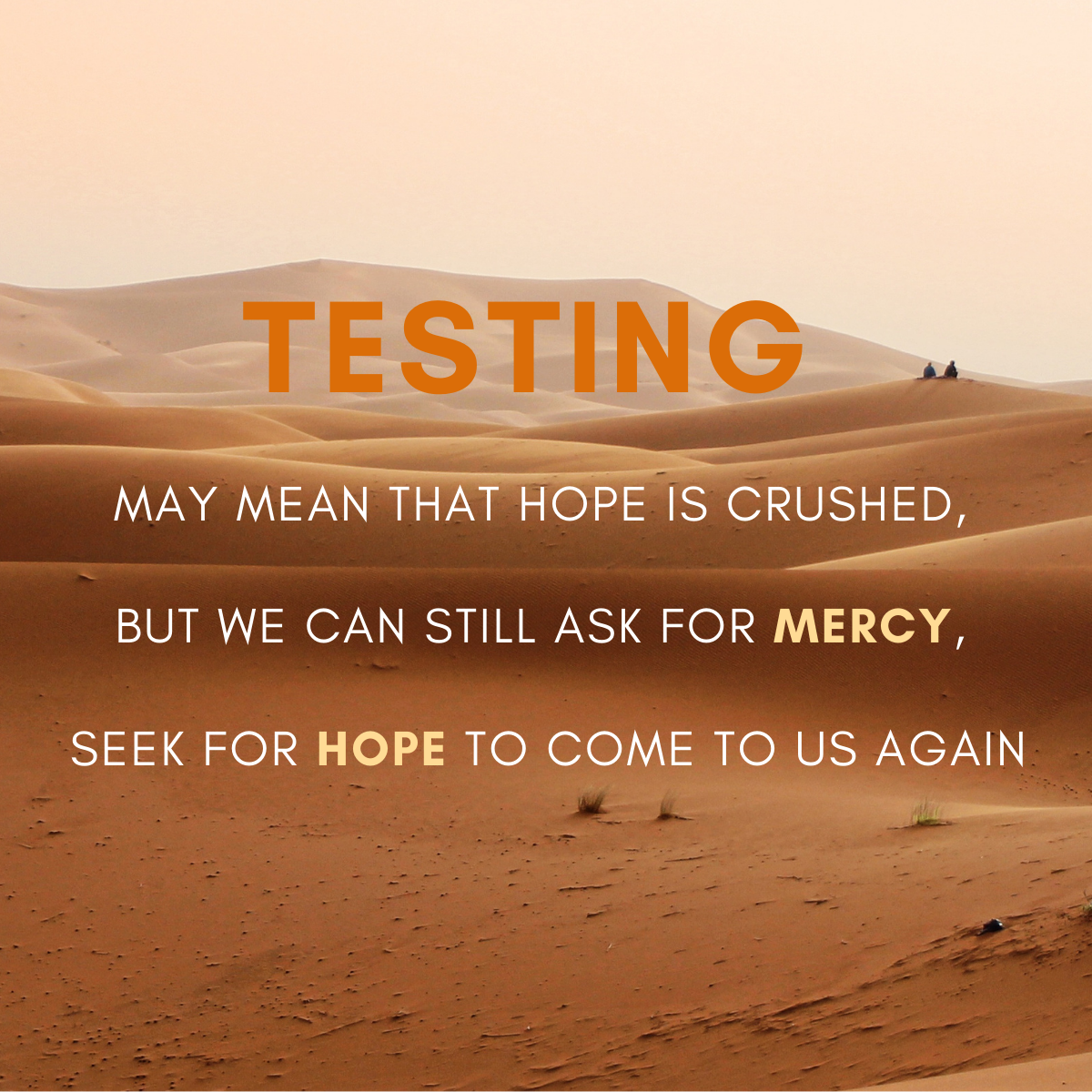Authenticity is venturing into the darkest parts of a culture and discovering God there.
Testing of authenticity is a process we enter into at different moments as we walk in covenant with God. It is a way that God seeks us and knows us. It reveals both our hearts and God’s heart for us. Though divine testing may appear disciplinary in nature, its intent is authentic relationship. “And it happened that after these things, God tested Abraham” (Genesis 22:1 LEB).
When God tests us, he knows us. It is personal, not impersonal. Even if the test is the felt absence of God’s presence, the test is still the personal interest of God calling us to a more authentic place. It is our response of knowing God has called us by name.
“And he said to him, ‘Abraham!’ And he said, ‘Here I am’” (Ge 22:1 LEB).
When testing comes, it can be a parabolic moment, when our own life choice reflects the future of what God is doing in the earth to redeem creation. And he said, “Take your son, your only child, Isaac, whom you love, and go to the land of Moriah, and offer him there as a burnt offering on one of the mountains where I will tell you.” (Ge 22:2 LEB). This scripture looks to the day, when the Father sends his “Only Begotten Son” that he loves to be a sacrifice for the world he loves.
When God tells Abraham to sacrifice his firstborn son of the promise, on one level this was not shocking for Abraham at all. This moment of testing follows in the common and awful cultural practice of Canaan, sacrifice of the firstborn. Maybe this possibility was a deep fear already in his heart. Testing often draws out our fears, like a needle seeking a deep splinter festering in the hand. Relief is soon to follow, though.
Three things are carried into testing: the burden, the fire and the knife. And Abraham took the wood of the burnt offering and placed it on Isaac his son. “And he took the fire in his hand and the knife, and the two of them went together” (Ge 22:6 LEB). The burden is that our test doesn’t simply impact us; it also impacts those close to us. They also must shoulder the burden and inevitably are tested by our very personalized test. The fire is what consumes and purifies. The knife takes life and kills. We carry both of these, the fire and the knife, with us to obey the voice of God in this dark culture. The consuming and the killing of our dreams is what gives our faith wings to fly into the heavenly revelations of who God is.
Isaac carried the wood but Abraham led the child. Which was the heavier burden? When Jesus shouldered the wood for his cross on the path to Golgotha, how heavy was the heart of his Father who asked him to drink the cup? Do not think that the alter or cross you face means you’re God-forsaken. We may feel God-forsaken and for this moment in time, feel utterly alone. But the Father’s heart participates in our testing even if his capacity to rescue us is restrained, or his presence darkened from our view.
On this mountain of sacrifice God was both going to drive the idea of child sacrifice far from Abraham and replace it with a new paradigm of something far greater. To gain the paradigm of the new, the replica of the old had to be in action. When Abraham faced death because of the evil of child sacrifice, God engaged him first with expectancy of hope, and then hope fulfilled.
Testing may mean that we do not see the smile of God or feel the assurance of his presence, but this is a place spiritual faith should take wing. Testing may mean that hope is crushed, but we can still ask for mercy, seek for hope to come to us again, knock on the walls until they crumble and openings break into view.
If we have not encountered this “dark night of the soul” our faith is still small. We may have faith for miracles but not for a resurrection. But resurrection power in our every day experience is what makes a deep joy fountain in our soul.
1 Steiner, B. (2016). Canaanite Religion. In J. D. Barry, D. Bomar, D. R. Brown, R. Klippenstein, D. Mangum, C. Sinclair Wolcott, … W. Widder (Eds.), The Lexham Bible Dictionary. Bellingham, WA: Lexham Press.
Matthews, V. H., Chavalas, M. W., & Walton, J. H. (2000). The IVP Bible background commentary: Old Testament (electronic ed., Ex 13:1–3). Downers Grove, IL: InterVarsity Press.
Sayce, A. H. (1915). Canaan, Canaanites. In J. Orr, J. L. Nuelsen, E. Y. Mullins, & M. O. Evans (Eds.), The International Standard Bible Encyclopaedia (Vol. 1–5, p. 551). Chicago: The Howard-Severance Company.
2 Photo by Nicolai Traasdahl Tarp on Unsplash



